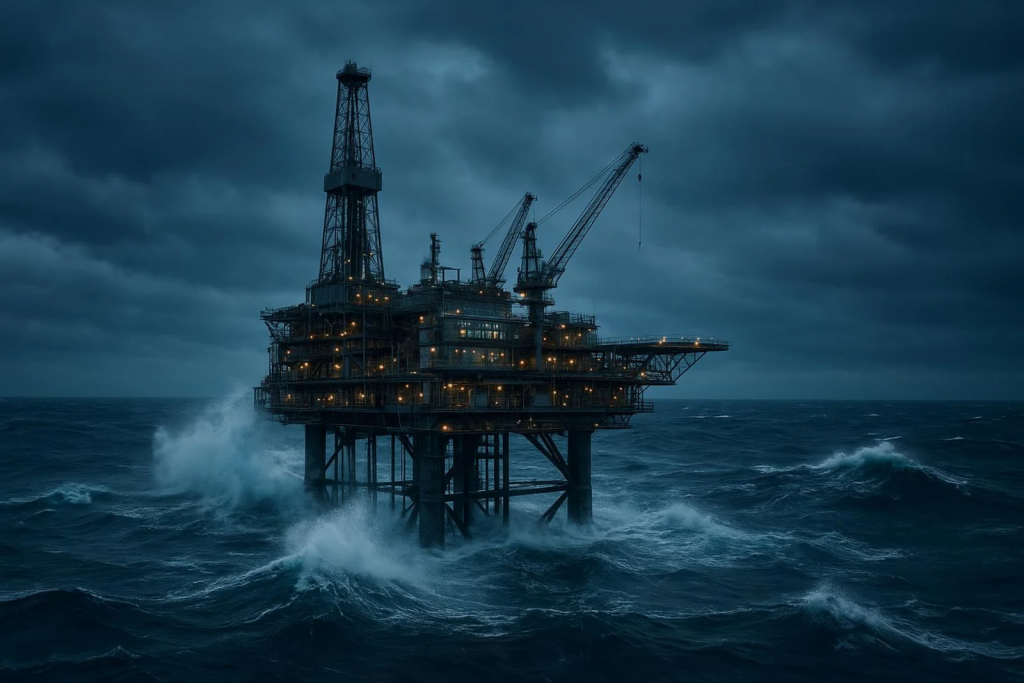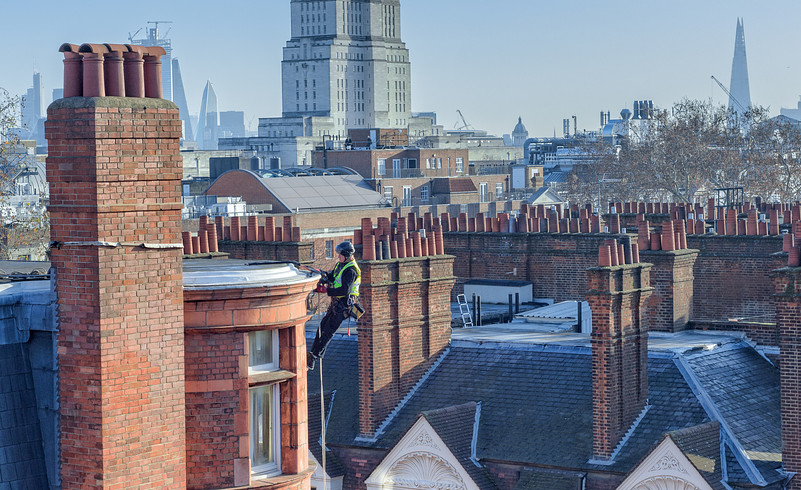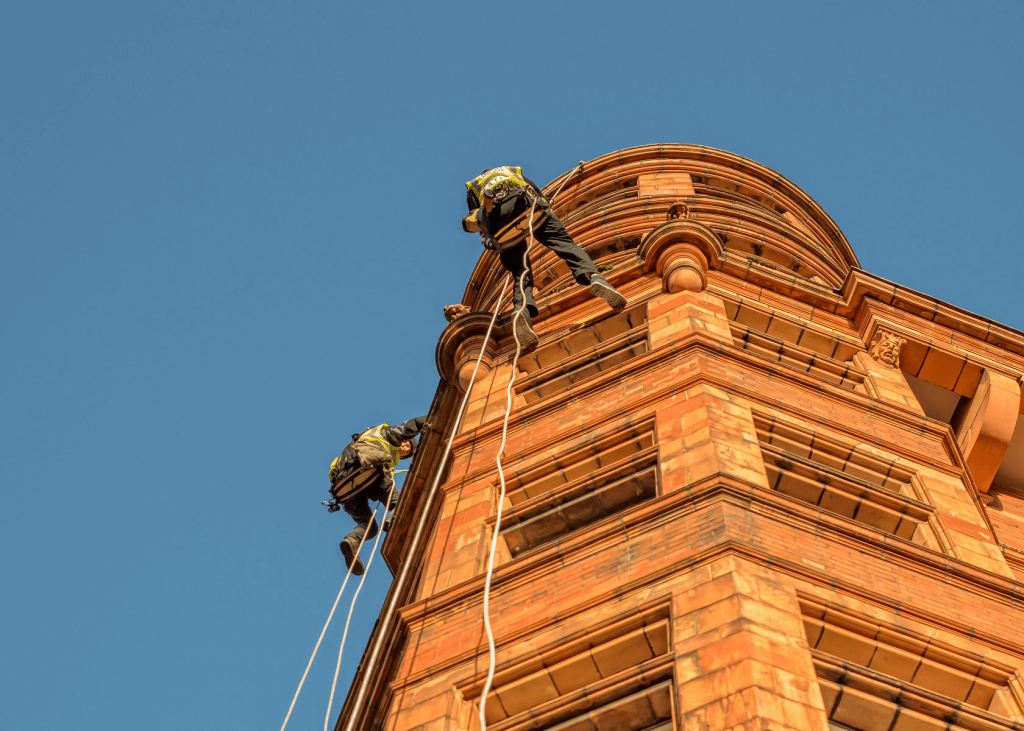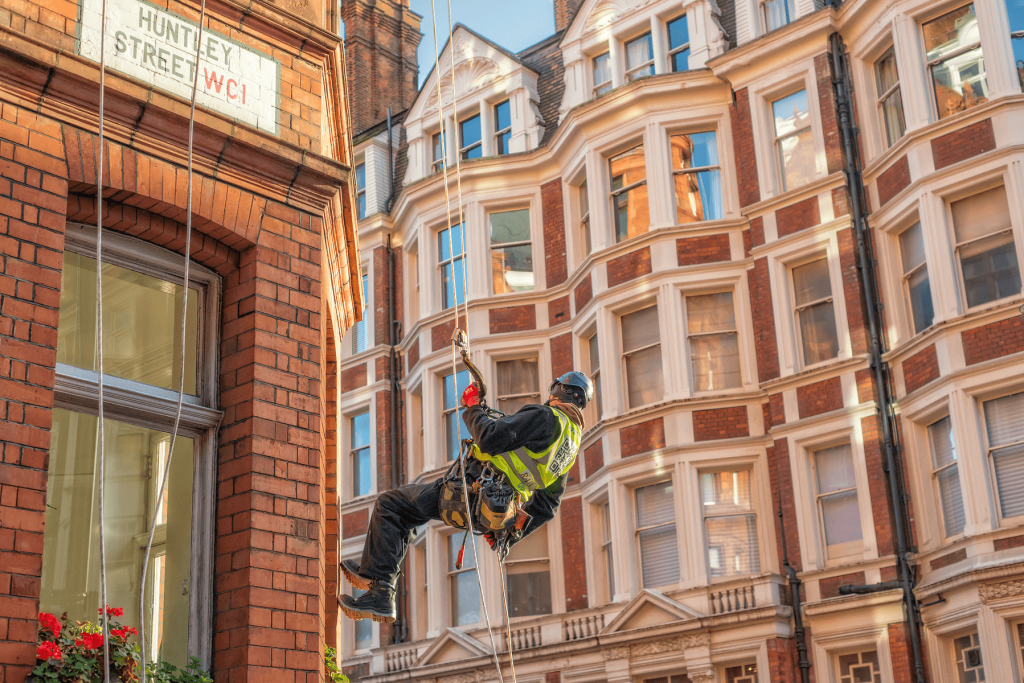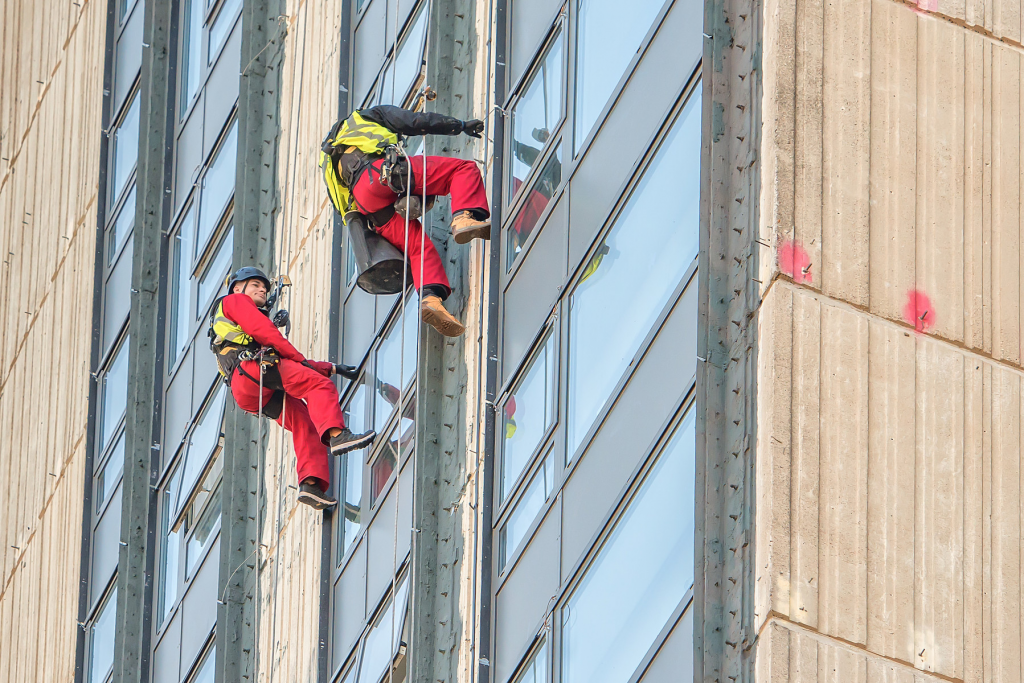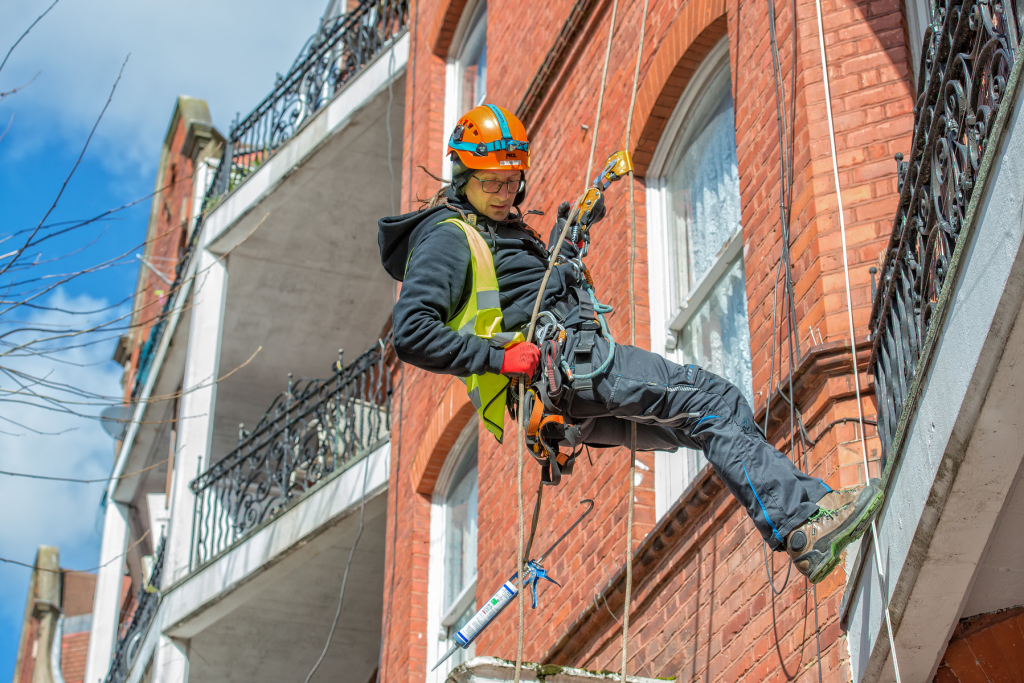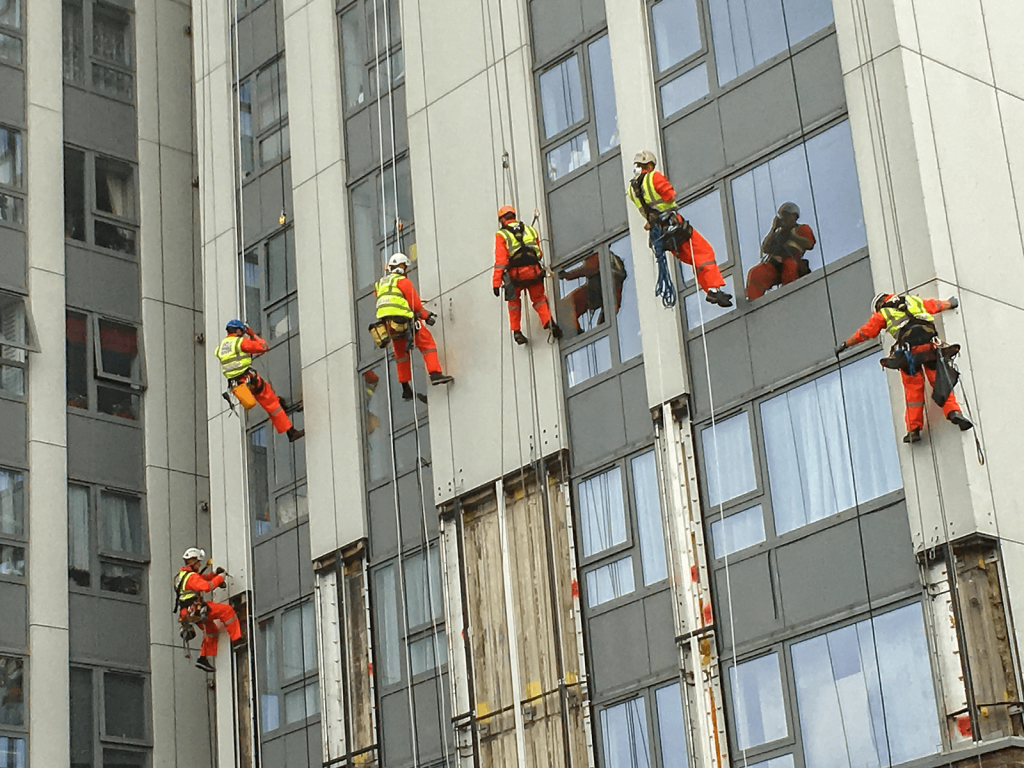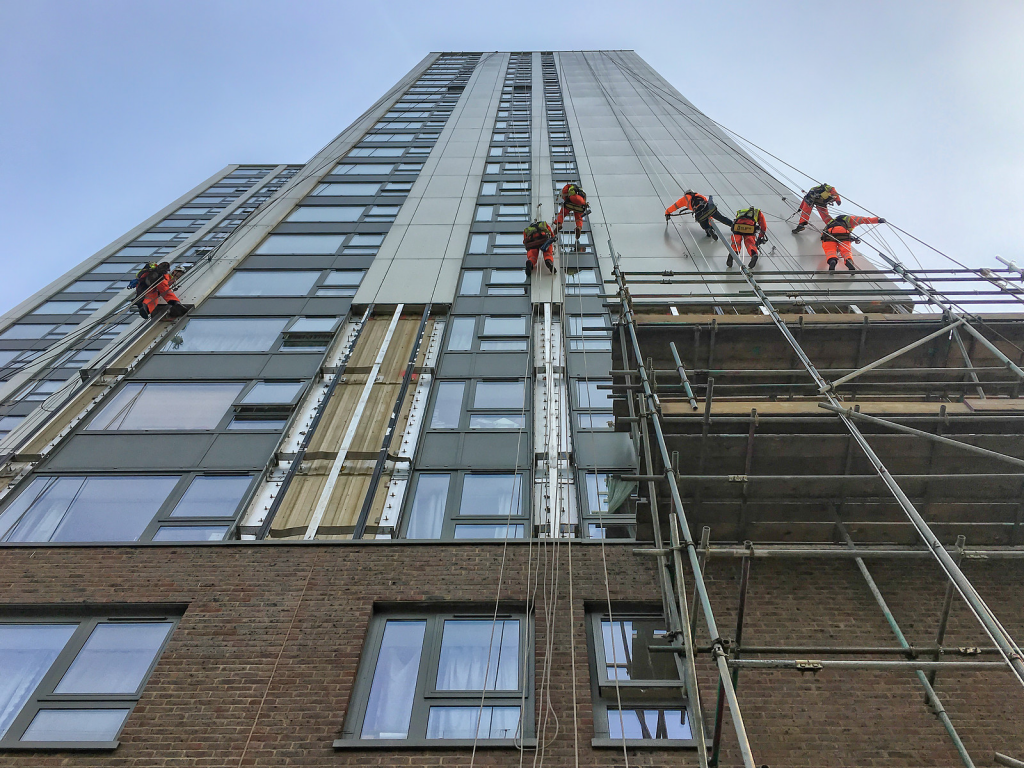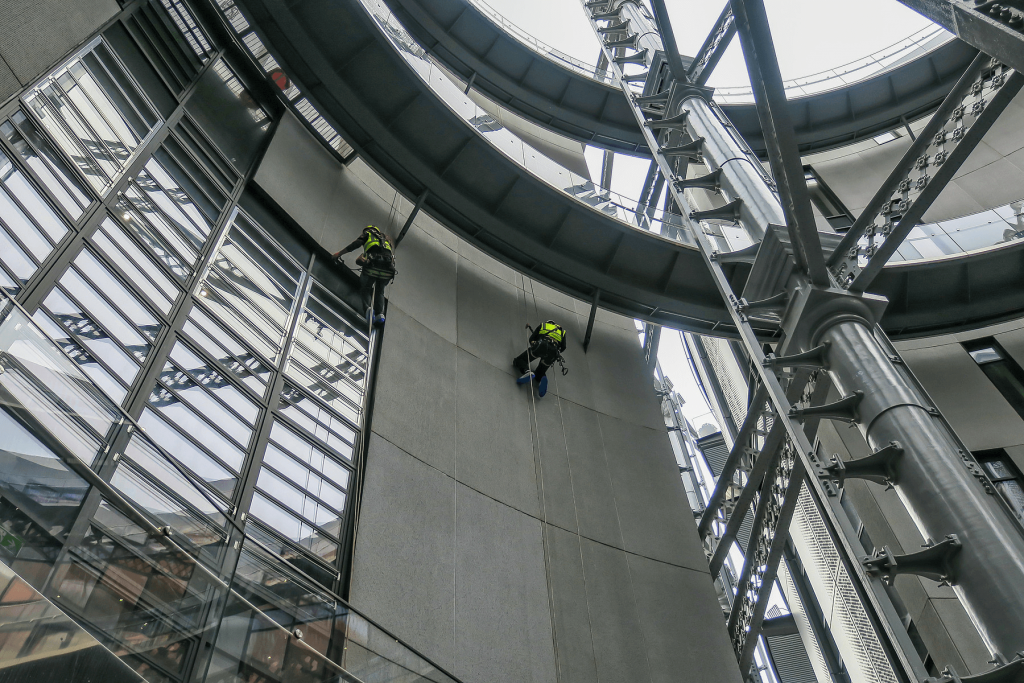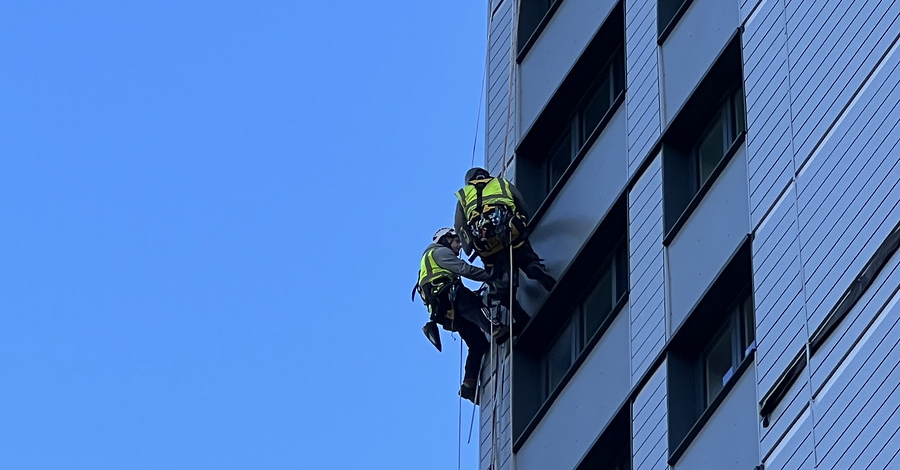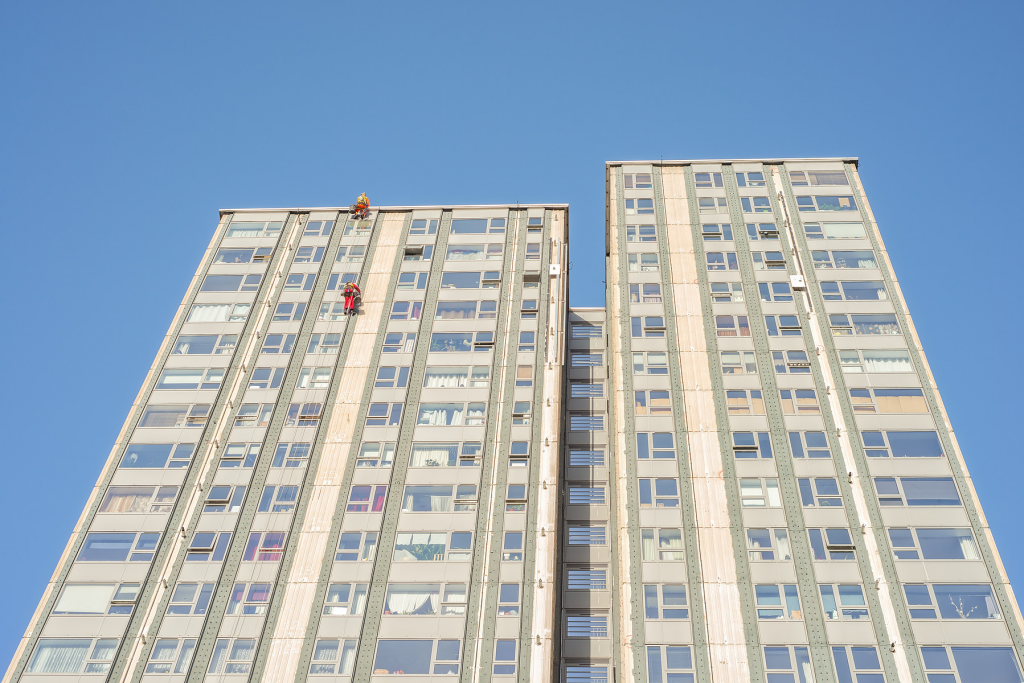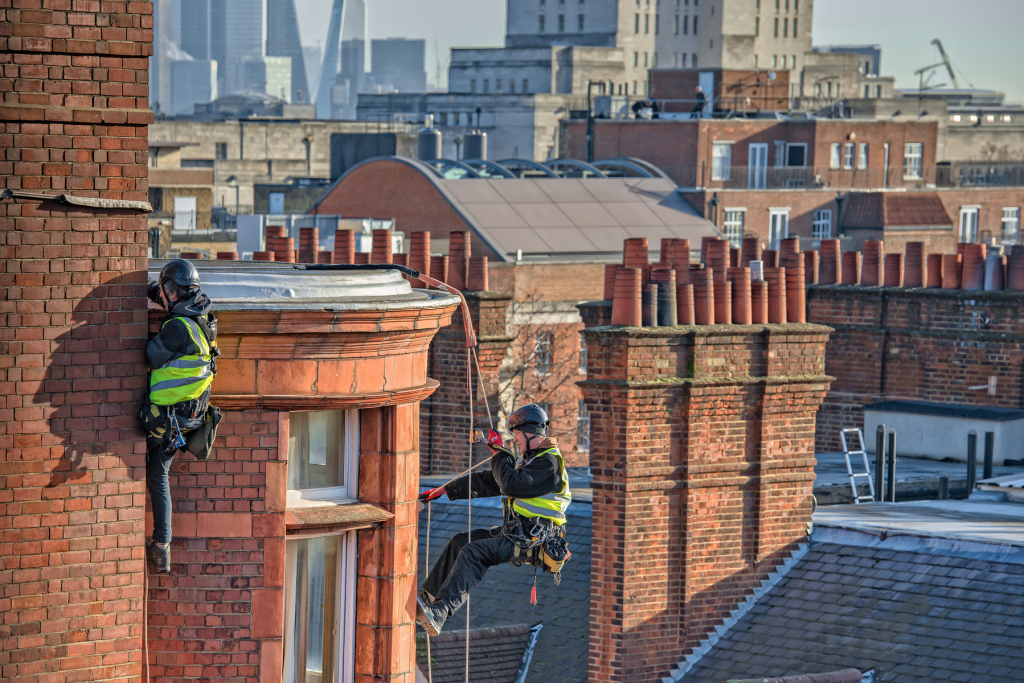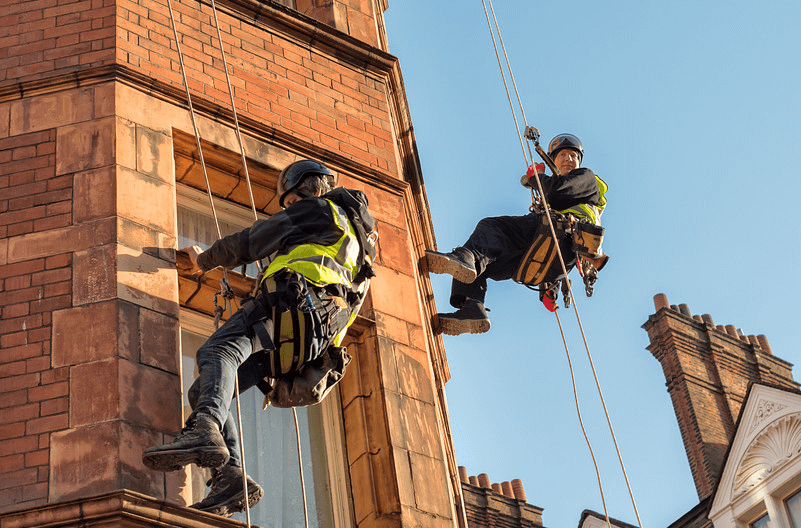
Offshore oil and gas maintenance covers a full set of services, plans, and tools built to keep offshore facilities running safely and efficiently, day after day. These activities are central to the industry, shaping uptime, costs, worker safety, and protection of the sea.
Maintenance combines planned work and quick response work to keep complex equipment and structures working in rough conditions.
In short — this is the work that keeps pumps moving, turbines spinning, and energy flowing, even when nature is tough.
At Rope Access in London (RAIL), we’ve become trusted partners in offshore maintenance, delivering comprehensive solutions that combine rope access expertise with specialist trade skills.
What Are Offshore Oil & Gas Maintenance Solutions?
Offshore maintenance solutions include many services and methods that help keep assets in the sea working well and safely.
These solutions are built to fit offshore challenges like storms, saltwater corrosion, and long distances from shore. They cover routine inspections, preventive repairs, big upgrades, and emergency fixes.
These solutions also cover asset integrity management, making sure every part, from small valves to large platforms, works well through its life. This wide approach is key because offshore assets cost a lot to build and failures can be severe. The goal is steady production, safe crews, and care for the marine environment.
We provide integrated maintenance solutions that address multiple needs in coordinated fashion. Our rope access capabilities allow us to reach difficult areas quickly, whilst our specialist technicians can perform repairs, painting, waterproofing, and other essential maintenance work without the delays and costs associated with traditional access methods.
Key Challenges in Offshore Maintenance
Keeping offshore facilities in good shape brings special challenges that need new and strong answers. The main issues include:
- Harsh environment: saltwater, strong winds, and waves speed up wear and corrosion.
- Logistics: moving people, tools, and parts offshore is costly, slow, and weather-dependent.
- Safety risks: confined spaces, work at height, hydrocarbons, and heavy equipment require strict safety rules and skilled teams.
- Scale and complexity: many pipelines, process units, and living areas add layers of difficulty to maintenance plans.
These factors call for careful materials selection, coatings, frequent checks, and a reliable supply chain with careful planning. Our experience working in these conditions has taught us that success comes from meticulous preparation, multi-skilled teams, and the ability to adapt quickly when conditions change.
Objectives of Maintenance Solutions in Offshore Environments
Main objectives of offshore maintenance all lead to safe, efficient, and profitable operations:
- Safety of personnel: all tasks must put safety first, reducing risk from hazardous areas and complex machines. This goal supports all others.
- Operational continuity: avoid unplanned shutdowns that cut output and raise costs. Good maintenance keeps equipment running at full capacity.
- Asset integrity and life: manage condition early and often to extend life, delay replacements, and protect large investments.
- Environmental compliance: prevent spills and emissions through good maintenance, meeting laws and protecting the sea.
At RAIL, these objectives guide every project we undertake. Our IRATA-certified teams bring the technical skills, safety awareness, and operational understanding needed to deliver maintenance that genuinely protects people, assets, and the environment.
Need reliable offshore maintenance partners?Contact us!
Types of Maintenance Services for Offshore Oil & Gas Facilities
Using a mix of maintenance methods helps assets last longer and work better. No single method fits all needs. Teams combine several approaches to match equipment type, operating needs, and risk.
Choosing methods involves balancing cost, risk, and how critical the equipment is. A good plan blends these approaches to build a steady, flexible way of working.
Maintenance Methods at a Glance
| Method | Purpose | Typical Tasks | Pros | Limits |
| Preventive | Keep failures from happening | Scheduled inspections, lubrication, part changes | Reduces breakdowns, supports safety | May replace parts early |
| Corrective | Fix after failure | Fault finding, repair, return to service | Fits non-critical assets | High risk and cost for critical gear |
| Predictive | Use data to plan work before failure | Vibration, thermal, oil, acoustic analysis | Cuts unplanned downtime and cost | Needs sensors, software, and skills |
| Condition-Based | Act on measured condition | Real-time monitoring vs. thresholds | Targets the right work at the right time | Setup and data quality matter |
| Shutdown & Turnaround | Do major work whilst offline | Vessel entry, big overhauls, upgrades | Handles tasks not possible online | Stops production and needs careful planning |
Preventive Maintenance
Preventive maintenance follows set intervals, even if no problem is seen. The idea is simple: steady upkeep and part changes stop surprise failures that cost more and cause more disruption.
Offshore, this includes inspections, lubrication, filter swaps, and planned overhauls based on vendor advice or history. Sometimes this means working on healthy equipment, but avoiding unplanned downtime and keeping people safe is worth it.
Corrective Maintenance
Corrective or reactive maintenance happens after a fault. Teams find the cause, fix or change parts, and return the item to service. This can work for non-critical items where planned work would cost more than a rare failure.
For critical equipment, using only corrective work brings high risk and cost. Failures can stop production, raise safety risk, and harm the environment. The goal is to keep corrective work low by using preventive and predictive methods.
Predictive Maintenance
Predictive maintenance uses condition monitoring and data analysis to spot problems before they cause failures. Technologies include vibration analysis, thermography, oil analysis, and acoustic monitoring. The data reveals trends that indicate developing issues, allowing planned intervention at optimal times.
This approach is highly effective offshore because it avoids both unnecessary preventive work and costly corrective failures. It requires investment in monitoring systems and skilled interpretation, but the savings in avoided downtime and optimised maintenance scheduling often justify these costs.
Condition-Based Maintenance
Condition-based maintenance is similar to predictive maintenance but focuses on real-time monitoring against defined thresholds. When a parameter exceeds acceptable limits — such as vibration levels, temperature, or corrosion rates — maintenance is triggered.
This method ensures work happens when truly needed, based on actual asset condition rather than arbitrary intervals. It requires robust monitoring infrastructure and clear decision criteria, but delivers efficient resource use and helps extend equipment life.
Shutdown and Turnaround Maintenance
Major maintenance requiring equipment to be taken offline happens during planned shutdowns or turnarounds. These are complex operations involving extensive preparation, large workforces, and coordination of numerous contractors performing diverse tasks simultaneously.
Shutdown work includes activities impossible during normal operations: internal vessel inspections, major equipment overhauls, significant upgrades, and comprehensive structural work. Efficient execution is critical because every day offline represents substantial lost production revenue.
Planning an offshore shutdown or turnaround? Our efficient rope access methods reduce turnaround duration and costs.Check our solutions!
Choosing the Right Offshore Maintenance Service Provider
Selecting maintenance contractors significantly impacts offshore asset safety, reliability, and cost-effectiveness. The cheapest option rarely proves most economical when considering total cost of ownership, and inadequate service providers create risks that far outweigh any savings.
Key Criteria for Service Provider Selection
When evaluating potential maintenance partners, consider:
- Safety record and culture: Review incident rates, safety management systems, and safety training programmes. A strong safety culture should be evident, not just documented.
- Technical competence: Verify certifications, qualifications, and experience. Staff should hold appropriate trade qualifications, rope access certifications (if relevant), and offshore safety training.
- Experience and track record: Assess experience on similar platforms, equipment, and conditions. Request references and case studies demonstrating capability.
- Quality systems: Look for ISO 9001 or equivalent quality management systems indicating organised, consistent processes.
- Insurance and financial stability: Ensure adequate insurance coverage for offshore work and verify financial stability to complete contracted work.
- Flexibility and responsiveness: Evaluate ability to mobilise quickly, adapt to changing conditions, and respond to emergencies.
- Value proposition: Consider total value — not just price. Efficient methods, quality work, and reliability often deliver better value than simply the lowest quote.
Questions to Ask Potential Contractors
- What relevant experience do you have on similar offshore facilities?
- What certifications and qualifications do your technicians hold?
- What is your safety record over the past 3-5 years?
- What insurance coverage do you maintain for offshore rope access work?
- How quickly can you mobilise for planned work and emergency response?
- Can you provide references from similar projects?
- What quality management systems do you follow?
- How do you manage weather delays and schedule changes?
- What additional services can you provide beyond the immediate scope?
The RAIL Advantage
- Multi-skilled technicians: Our teams combine rope access certification with trade qualifications — welders, electricians, painters, plumbers, and cleaners who can address diverse maintenance needs.
- Integrated services: We provide comprehensive solutions including building maintenance, external painting, waterproofing, cleaning, and structural repairs, reducing the number of contractors you need to coordinate.
- Proven offshore experience: We’ve successfully completed numerous projects on oil and gas rigs and wind turbines in UK waters, demonstrating our capability in demanding offshore environments.
- Rapid mobilisation: Our efficiency and flexibility allow quick response to both planned and emergency maintenance needs.
- Safety excellence: Our IRATA certification, offshore safety training, and comprehensive safety management systems demonstrate our commitment to working safely.
- Quality and reliability: We deliver consistent quality backed by appropriate insurance, quality systems, and a track record of completing projects on time and to specification.
Frequently Asked Questions
What are typical costs for offshore maintenance compared to onshore?
Offshore maintenance typically costs 2-3 times more than equivalent onshore work, with some activities costing even more. Cost drivers include:
- logistics of transporting personnel, equipment, and materials offshore (helicopter or boat transfers)
- accommodation costs for personnel staying offshore
- weather delays and standby time when conditions prevent work
- premium rates for offshore-qualified personnel
- higher insurance costs reflecting offshore risks
- equipment specifically designed for marine environments
What role does preventive maintenance play in avoiding catastrophic failures?
Preventive maintenance is absolutely critical for avoiding catastrophic failures offshore. Regular inspections identify deterioration before it becomes critical — corrosion, fatigue cracks, wear, and other degradation mechanisms that, if unchecked, can lead to structural failures, fires, explosions, or environmental disasters. Scheduled component replacements prevent wear-out failures of critical equipment.
How do weather conditions impact offshore maintenance scheduling?
Weather is the single biggest variable affecting offshore maintenance scheduling. High winds (typically above 12-15 m/s) prevent rope access work and make crane operations dangerous. Rough seas affect boat access and platform stability, potentially stopping work. Heavy rain reduces visibility and makes surfaces slippery.
{ “@context”: “https://schema.org”, “@type”: “FAQPage”, “mainEntity”: [{ “@type”: “Question”, “name”: “What are typical costs for offshore maintenance compared to onshore?”, “acceptedAnswer”: { “@type”: “Answer”, “text”: “Offshore maintenance typically costs 2-3 times more than equivalent onshore work, with some activities costing even more. Cost drivers include: logistics of transporting personnel, equipment, and materials offshore (helicopter or boat transfers) accommodation costs for personnel staying offshore weather delays and standby time when conditions prevent work premium rates for offshore-qualified personnel higher insurance costs reflecting offshore risks equipment specifically designed for marine environments” } },{ “@type”: “Question”, “name”: “What role does preventive maintenance play in avoiding catastrophic failures?”, “acceptedAnswer”: { “@type”: “Answer”, “text”: “Preventive maintenance is absolutely critical for avoiding catastrophic failures offshore. Regular inspections identify deterioration before it becomes critical — corrosion, fatigue cracks, wear, and other degradation mechanisms that, if unchecked, can lead to structural failures, fires, explosions, or environmental disasters. Scheduled component replacements prevent wear-out failures of critical equipment.” } },{ “@type”: “Question”, “name”: “How do weather conditions impact offshore maintenance scheduling?”, “acceptedAnswer”: { “@type”: “Answer”, “text”: “Weather is the single biggest variable affecting offshore maintenance scheduling. High winds (typically above 12-15 m/s) prevent rope access work and make crane operations dangerous. Rough seas affect boat access and platform stability, potentially stopping work. Heavy rain reduces visibility and makes surfaces slippery.” } }] }